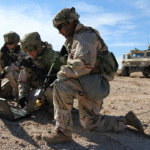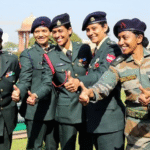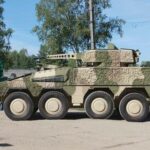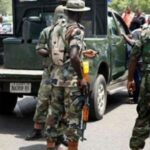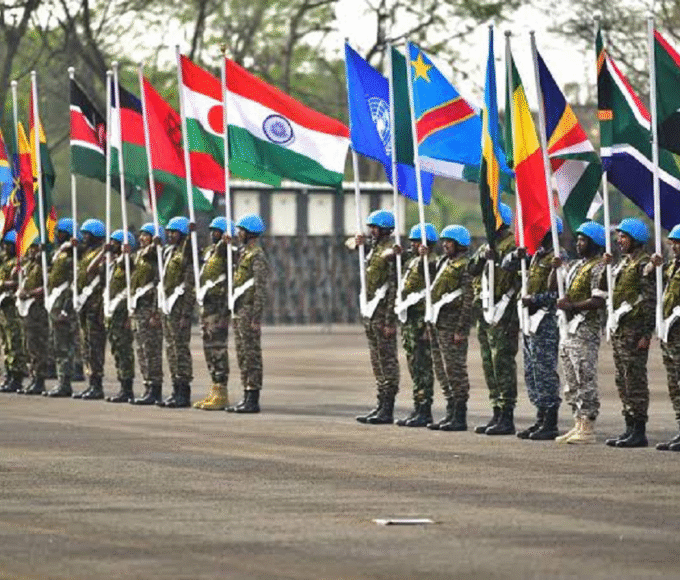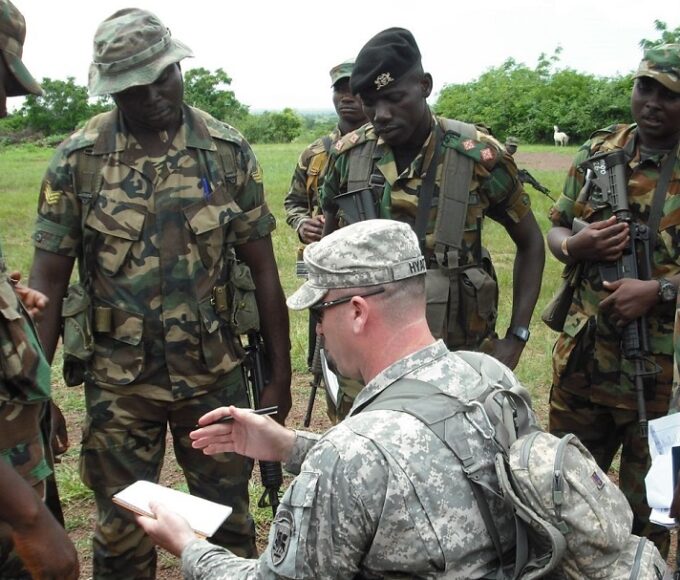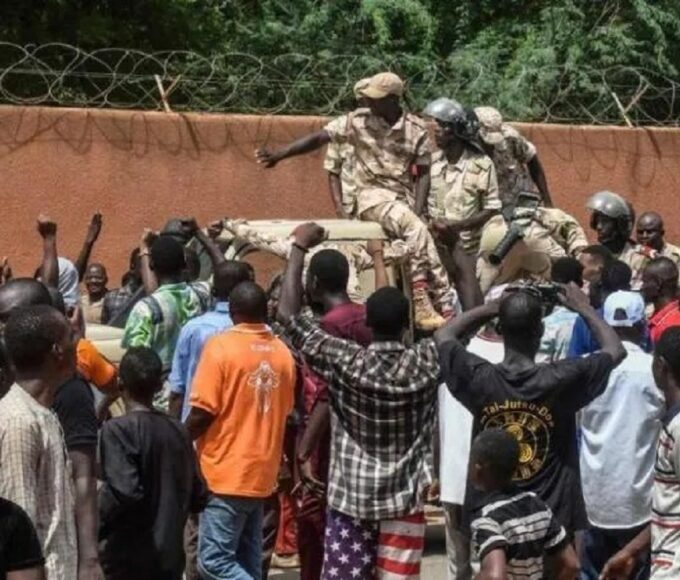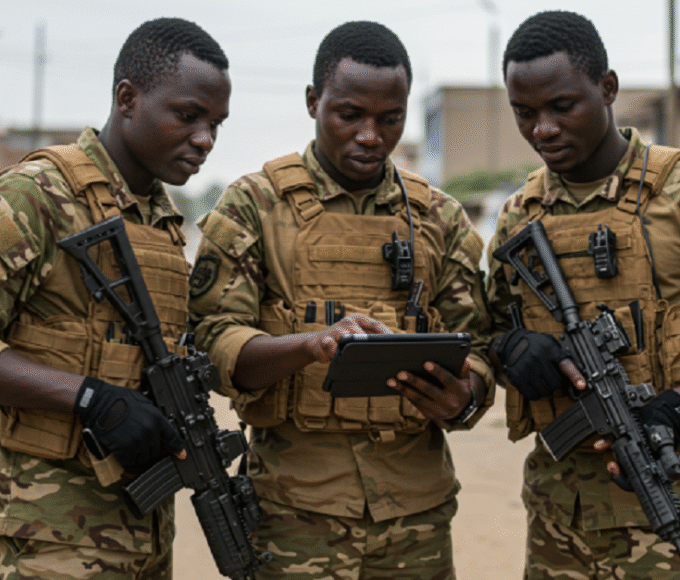Post-Independence Coups and the Military’s Role in Nation-Building
“The military re-enters where the civilian elite has failed,” warns Colonel (rtd.) Ibrahim Traoré, a defence analyst in Ouagadougou. “That is the lesson of the last sixty years—and the warning of the next sixty.”

In the euphoric aftermath of independence, African capitals echoed with speeches of sovereignty and visions of a new dawn. But within a few years, many of those very capitals fell silent—save for the rumble of armoured vehicles and the crackle of coup announcements on state radio. Across Africa, the transition from colonial rule to self-governance was interrupted repeatedly by the very institutions meant to protect it: the armed forces.
Between 1960 and 2000, Africa witnessed more than 200 military coups and attempted putsches, the highest concentration in any region worldwide. In some countries, the military became a revolving door for power. In others, it was the only institution left standing after state collapse. Whether as disruptors or stabilisers, African militaries played a defining role in the messy work of post-independence nation-building—sometimes as guardians of national interest, often as arbiters of internal division.
The Age of the Barracks President
The first major post-independence coup took place in Togo in 1963, when President Sylvanus Olympio was assassinated by disgruntled ex-French army veterans led by Sergeant Étienne Eyadéma (later Gnassingbé Eyadéma). It would not be the last.
By the early 1970s, countries like Nigeria, Ghana, Uganda, Ethiopia, and Sudan had all experienced military takeovers. The justifications were often the same: corruption, ethnic favouritism, civil disorder, and a failure of civilian leadership. But over time, coups evolved from corrective interventions into entrenched systems of rule.
- Idi Amin (Uganda, 1971–1979) used the military as both sword and shield, unleashing purges, disappearances, and genocidal violence.
- Jerry Rawlings (Ghana) launched two coups (1979 and 1981) before eventually guiding the country into democratic reforms.
- Muammar Gaddafi (Libya), a young army officer, seized power in 1969 and built one of Africa’s most enduring autocracies, cloaked in revolutionary rhetoric and military populism.
According to the African Centre for Strategic Studies, by 1985, more than two-thirds of sub-Saharan African countries were under military or single-party rule.
Military Power as a Response to Fragile Institutions
Many early African states were built on the weak foundations left by colonial rule—fragmented bureaucracies, artificial borders, and extractive economies. Civilian institutions often lacked both legitimacy and muscle.
“In most cases, the military was the only national institution with structure, resources, and national reach,” says Dr. Fatou Sylla, a political scientist at Dakar University. “It stepped into the vacuum—not always with bad intentions, but with disastrous outcomes.”
Military rulers often governed through decrees, suspended constitutions, and replaced parliaments with military councils. Yet ironically, in the absence of functioning states, some of these regimes undertook major developmental efforts.
- Thomas Sankara in Burkina Faso (1983–1987), though a military leader, launched radical reforms in education, women’s rights, and self-reliance.
- Ghana’s PNDC under Rawlings stabilised the economy and laid the foundation for democratic governance after years of decline.
- Nigeria’s military regimes invested in infrastructure and petroleum development—even as they sowed seeds of corruption and impunity.
The line between soldier and statesman became dangerously blurred.
The Coup-Proofing Era
After decades of instability, the 1990s ushered in a new phase: military disengagement and democratic resurgence. Under pressure from global financial institutions, donor governments, and popular movements, many African countries began professionalising their militaries.
- Benin, once notorious for its coups, passed constitutional safeguards against military involvement in politics.
- South Africa’s new defence force was built on civilian control and parliamentary oversight.
- ECOWAS and the African Union adopted “zero tolerance” protocols on unconstitutional changes of government.
But the legacy of militarised politics lingered. Even in democratic transitions, ex-generals often retained influence.
- Nigeria’s Olusegun Obasanjo, a former military ruler, returned as a civilian president in 1999.
- Paul Kagame (Rwanda) and Yoweri Museveni (Uganda), both guerrilla leaders, have remained in power for decades.
The barracks no longer staged coups—but they still held the keys to state power.
The Military’s Evolving Role Today
Today’s African militaries are more diverse, professional, and regionally engaged than ever before. They are at the frontline of peacekeeping, counter-terrorism, and humanitarian relief.
- African Union peacekeeping missions, particularly in Somalia (ATMIS) and the Central African Republic, rely heavily on regional military capacity.
- Nigeria, Ethiopia, Kenya, and Rwanda are among the continent’s largest contributors to UN missions.
- Training academies, such as Ghana’s Kofi Annan International Peacekeeping Training Centre, now export doctrine and leadership to other countries.
Yet the return of coups in recent years—in Mali (2020, 2021), Guinea (2021), Burkina Faso (2022), and Niger (2023)—has reignited fears of military overreach. Analysts warn of a “coup contagion” in West Africa, driven by frustration with corruption, insecurity, and stalled democracies.
“The military re-enters where the civilian elite has failed,” warns Colonel (rtd.) Ibrahim Traoré, a defence analyst in Ouagadougou. “That is the lesson of the last sixty years—and the warning of the next sixty.”
A Double-Edged Sword
Africa’s post-independence military history is a tale of paradox. Armies that overthrew governments also built schools, roads, and national unity. Generals who dismantled constitutions sometimes created the conditions for stronger ones. The barracks gave rise to both dictators and democrats.
The challenge for the next generation is not to erase the military from national life, but to reposition it as a tool of national defence—not political domination. That means stronger civilian control, clearer legal mandates, better training, and a deeper public understanding of the military’s role in a democratic society.
Because when the army serves the nation—and not the reverse—then the hard lessons of Africa’s post-independence coups may finally yield a better peace.
Snapshot: Coups and Military Power in Africa (1960–2023)
- Total successful coups: 106
- Total failed or attempted coups: 95+
- Countries with 4 or more coups: Burkina Faso, Nigeria, Ghana, Sudan
- First post-independence coup: Togo, 1963
- Recent coups (2020–2023): Mali, Guinea, Burkina Faso, Niger, Gabon
- AU and ECOWAS military response protocols adopted: 2002 (AU), 2001 (ECOWAS)
Recent Posts
Categories
- Air & Aerospace16
- Border Security15
- Civil Security4
- Civil Wars4
- Crisis5
- Cyber Security8
- Defense19
- Diplomacy19
- Entrepreneurship1
- Events5
- Global Security Watch6
- Industry8
- Land & Army8
- Leadership & Training5
- Military Aviation5
- Military History27
- Military Speeches1
- More1
- Naval & Maritime9
- Resources2
- Security12
- Special Forces1
- Systems And Technology9
- Tech6
- Uncategorized3
- UNSC1
- Veterans6
- Women in Defence9
Related Articles
INDIA’S GROWING MILITARY PARTNERSHIPS WITH AFRICA
India’s engagement with Africa is undergoing a quiet but powerful transformation. What...
ByKing Richard Igimoh, Group Editor ALOOctober 14, 2025EVOLVING HORIZONS: TRAINING THE AFRICAN SOLDIER IN A CHANGING LANDSCAPE
The training of African soldiers has undergone a profound transformation in recent...
ByKing Richard Igimoh, Group Editor ALOOctober 2, 2025COLD WAR AFRICA: PROXY WARS AND THEIR IMPACT
The Cold War in Africa, spanning from the late 1940s to the...
ByKing Richard Igimoh, Group Editor ALOSeptember 26, 2025AI AND AFRICA’S MILITARY INTELLIGENCE: PROMISE AND PERIL IN A TRANSFORMING SECURITY LANDSCAPE
Africa’s military landscape is entering a new chapter, shaped by the rapid...
ByKing Richard Igimoh, Group Editor ALOSeptember 22, 2025



